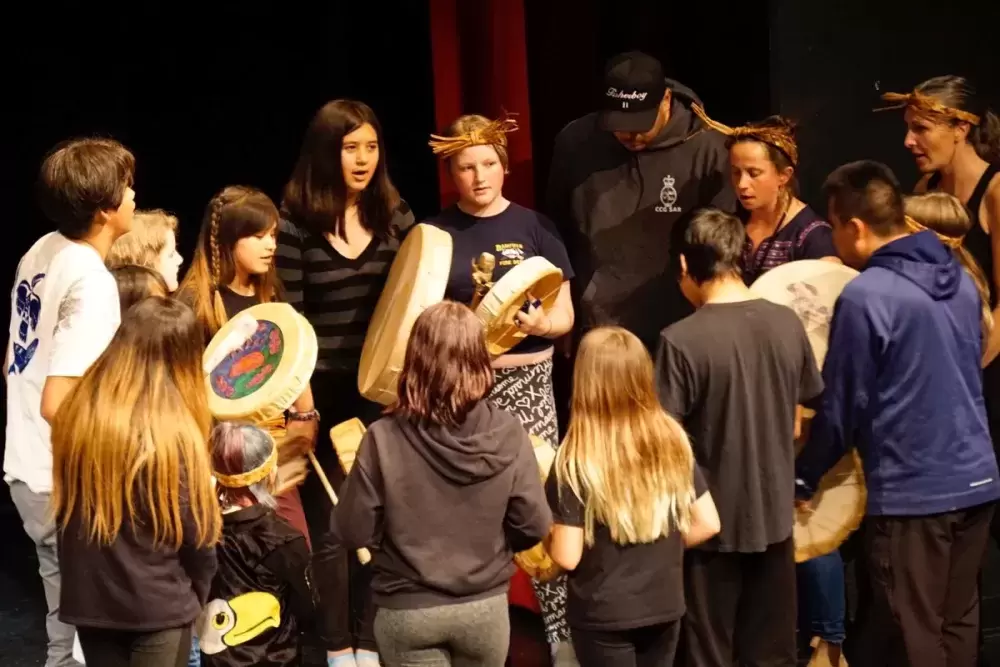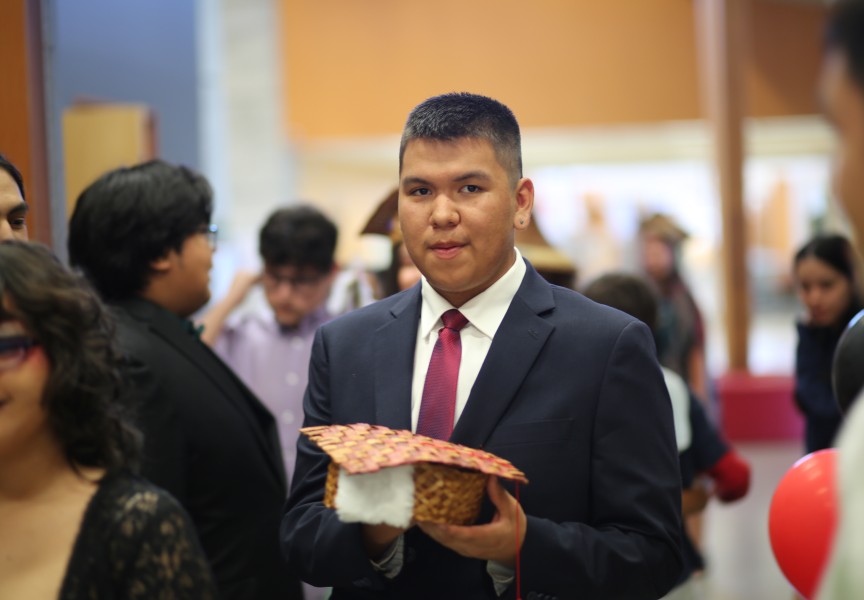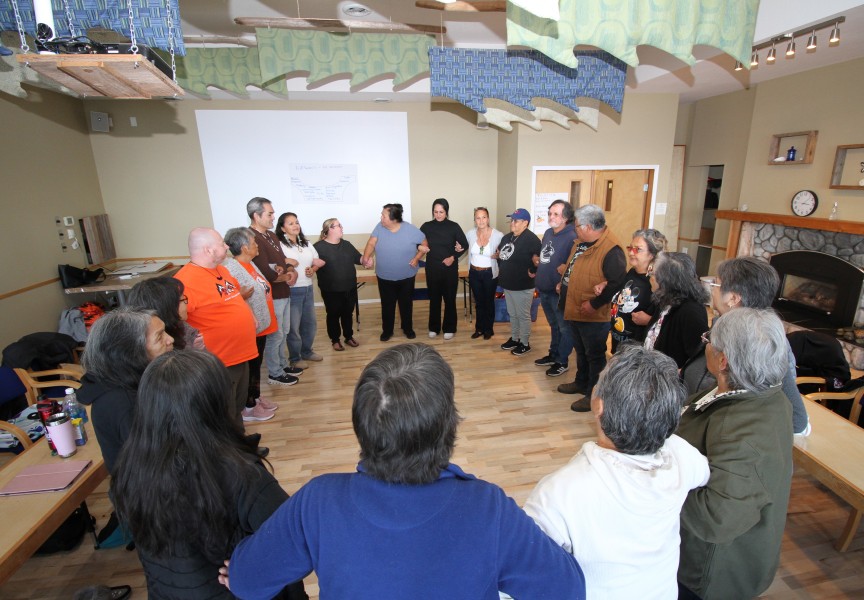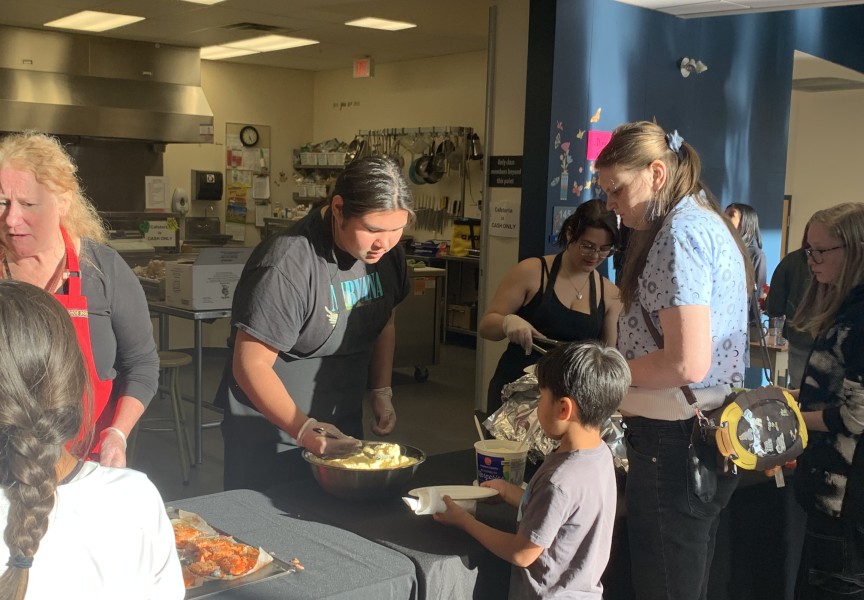Educators want to engage parents and caregivers in an online Zoom session focused on helping secondary students in Grades 8-12 get to graduation and beyond.
“We would like to increase the success and decrease the stress,” said Dave Maher, district principal of Indigenous education and Eighth Avenue Learning Centre in Port Alberni.
“We want to inform Nuu-chah-nulth families about what graduation will look like this year and what students have to do to graduate,” said Richard Samuel, NTC’s cultural development supervisor.
They also want the discussion to range beyond the usual grad-year considerations to provide a better understanding of how students can work towards their long-term goals. The idea is to provide advice in timely fashion so that students are aware of expectations and can take necessary steps to achieving their ambitions, they said.
Maher and Samuel will host the online session Wednesday, April 14, 7:30-9 p.m. (meeting ID and passcode included at the bottom of this article). Parents and caregivers of students enrolled at Alberni District Secondary School, Ucluelet Secondary School and Eighth Avenue Learning Centre are invited to join them online.
Online conferencing has become an essential communications tool during the prolonged COVID-19 pandemic, a means of overcoming the limitations of social distancing. In this instance, the plan is to follow up on the Zoom session by holding community meetings with Nuu-chah-nulth nations and then progressing to meetings with families.
“With Zoom, we’re trying to reconnect with parents and give them a sense of hope that the finish line is there,” Maher added. “We want parents and kids feeling good about themselves, connected with the future and having a sense of moving forward.”
They want to address two key aspects in the 90-minute session: What students need in order to graduate and, given pandemic-related uncertainties, a “best guess” of what graduation will look like so that everyone can prepare. They have a lot of information to convey but don’t want to overlook the basics.
“Richard and I thought it is really important to go over what is graduation,” Maher said. “What are the improvements you need to make in order to graduate?”
They decided to take the online approach after hearing “many parents” express disappointment that the students are not prepared by graduation to move onto the next stage of their lives.
“We need to ensure that parents and caregivers understand what their children are going through,” Samuel said. He oversees the activities of a team of ten Nuu-chah-nulth education workers specialized in helping students academically, culturally and socially.
Graduation means different things to different people, Maher noted. Graduation may be a stepping stone to post-secondary education, vocational training or the labour market, depending on individual interests, strengths and aspirations.
“What are the next steps? How can we best ensure success moving into the next phase of their lives? What are the dreams they have? We’d like to make sure we’re having those conversations,” Maher said.
Key discussions with school counselling staff and NTC support workers should ideally begin long before graduating year.
“As early as we can,” Maher said.
Nuu-chah-nulth education support workers have been having those direct conversations for 40 years. More recently, they have teamed up with the school district to ensure that communities are kept informed. Greater co-operation over the last five years has helped to increase awareness.
“It’s a work in progress, but part of that is encouraging families to be an active part of the equation,” Maher said.
There are just under 4,000 students enrolled in SD70 schools, 1,350 of whom identify as Indigenous, about 30 per cent. Of the Indigenous student population, 60 percent are Nuu-chah-nulth and 15 percent are Metis.
A majority of students returned to classroom learning in September after school closures last spring due to COVID-19. Some families opted to continue with home learning.
With students and families withdrawing from social contact due to the pandemic, educators have noticed more students lacking confidence as they go into schools, Maher said.
“We want to keep the momentum happening in life, to keep them moving forward, so students still have that North Star to look up at and their future for them is bright,” Maher said.
To take part in the April 14 online session, use Meeting ID: 842 8361 6224 and Passcode: La8B62.







